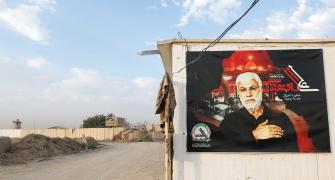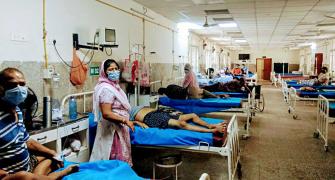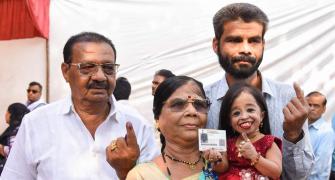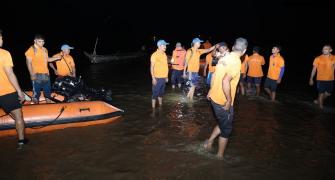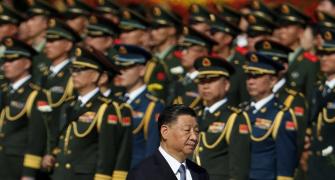Terror financing and counterfeit currency have been a constant headache for Indian security agencies. Vicky Nanjappa looks at the latest developments in India's fight against this 'dirty money'.
India has decided to take the issue of money laundering in terror operations on a world stage and the latest inputs suggest that it has managed to piece together the size and scope of the menace.
Investigations conducted by the Financial Wing of the Indian intelligence agencies show that nearly $24 billion (about Rs 110,400 crore) has made its way into the Indian market and this amount has been specifically used for terrorism. The number of illegal transactions, used to fund terror operations has gone up to nearly 6,000 in 2009-10, in comparison to 367 such instances between 2005 and 2007.
A report that has been prepared to this effect has been handed over to the Financial Action Task Force (an inter-governmental body set up to combat money laundering and terrorist financing) on the recommendation of the United States of America, which had told India to work along with this wing in order to curb terror financing. India also saw the need to work alongside the FATF since terror financing is an international issue.
However, the Intelligence Bureau, which has worked as per the directives of the finance ministry, has found that there are several high profile personalities are involved in this racket. They are mules who are being used to legalise the money trail. The IB also claimed to have seized Rs 150 crore in cash from a couple of people after they found out that these funds were to be used to finance terror activities in the country.
The IB says that Mumbai blasts accused and fugitive gangster Dawood Ibrahim continues to be the biggest financer of terror in India and the report submitted to the FATF mentions this. His network has being growing very rapidly and since the past few months, their transactions have gone up considerably, the IB pointed out.
Counterfeiting used to be Dawood's main method to raise money for terror financing, but new security measures which have been put in place have thwarted this option. The IB believes that the D-gang are attempting to work around the new security pattern but haven't had much success.
However, there has been a steady rise in the narcotics trade which itself amounts to billions of dollars. The D-Gang has struck a 60:40 deal with the ISI-sponsored groups in Pakistan. This would mean that the D-gang would have to part with 40 per cent of the income that it generates from the sale of narcotics, which the ISI then uses to finance terror.
The IB said that a lot of work needed to be done to cut such financing at its source. "We are sure that a lot of this money is being pumped into the Indian market through film producers and businessmen. These persons hold the money for these terror groups, which is later picked up by the terrorist's point man," said an IB officer.
The FATF report has plenty of references to Pakistan. The IB feels that the international community should pressure Pakistan to clean up this mess. "We can clean up our house, but to get something done in Pakistan, there has to be international intervention," said a source in the IB.
The money is bought in to India through the UAE, Bangladesh Nepal, Malaysia, Thailand and Sri Lanka. The ISI has set up point men who collect the money in these countries and then deliver it into India. In India it usually lands up with respectable individuals who hold the money for a certain period of time, until they are instructed to hand it over.
Conviction rate: While it was earlier mentioned that the number of cases which are pending in files in relation to illegal transfer of funds is 7,000. However the shocking aspect is that there has been just one conviction till date, in 2005!
Legal experts say that the conviction in such cases is extremely tough. This is not an issue which pertains only to India and has its roots outside the country. A large part of the evidence required originates in other countries, which are never forthcoming and hence it becomes a case of presumption, which is never enough to secure a conviction. It is essential to work with the FATF and agencies of other countries in order to ensure a better conviction rate for such crimes.

